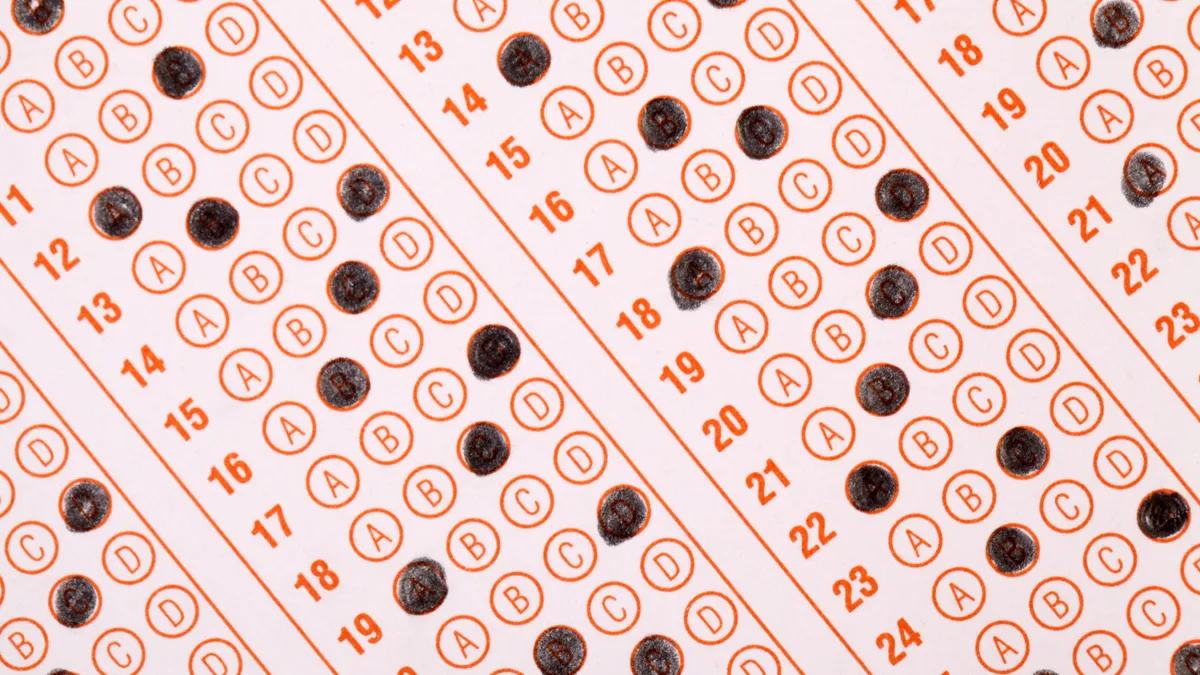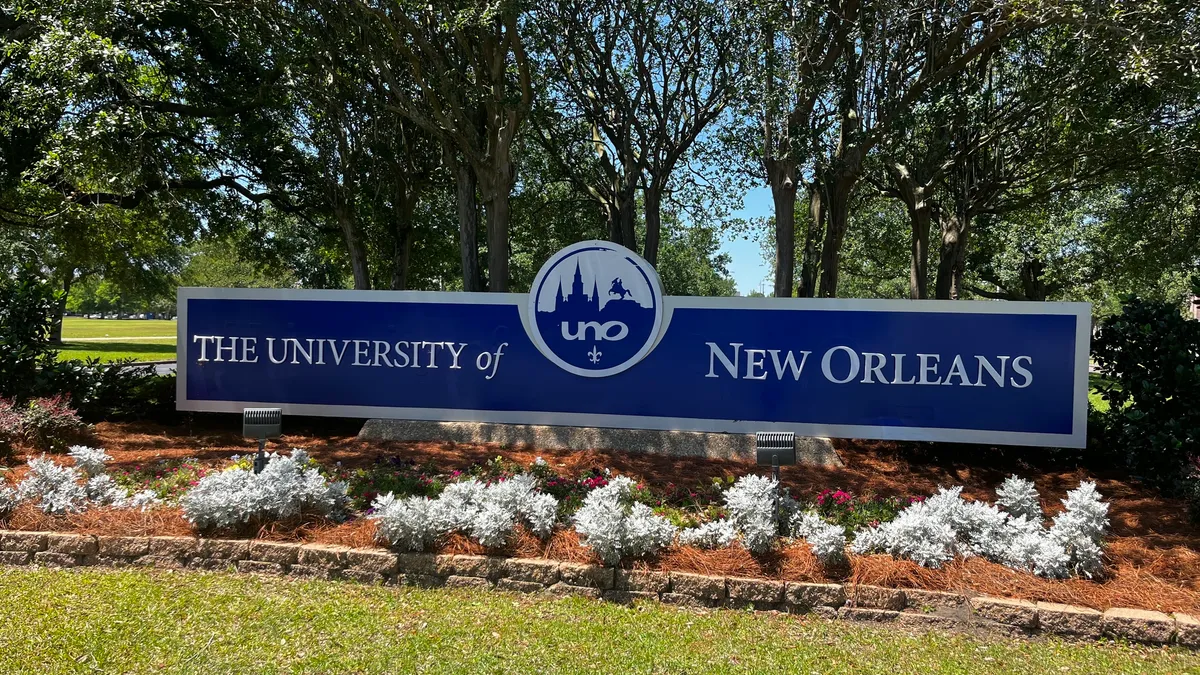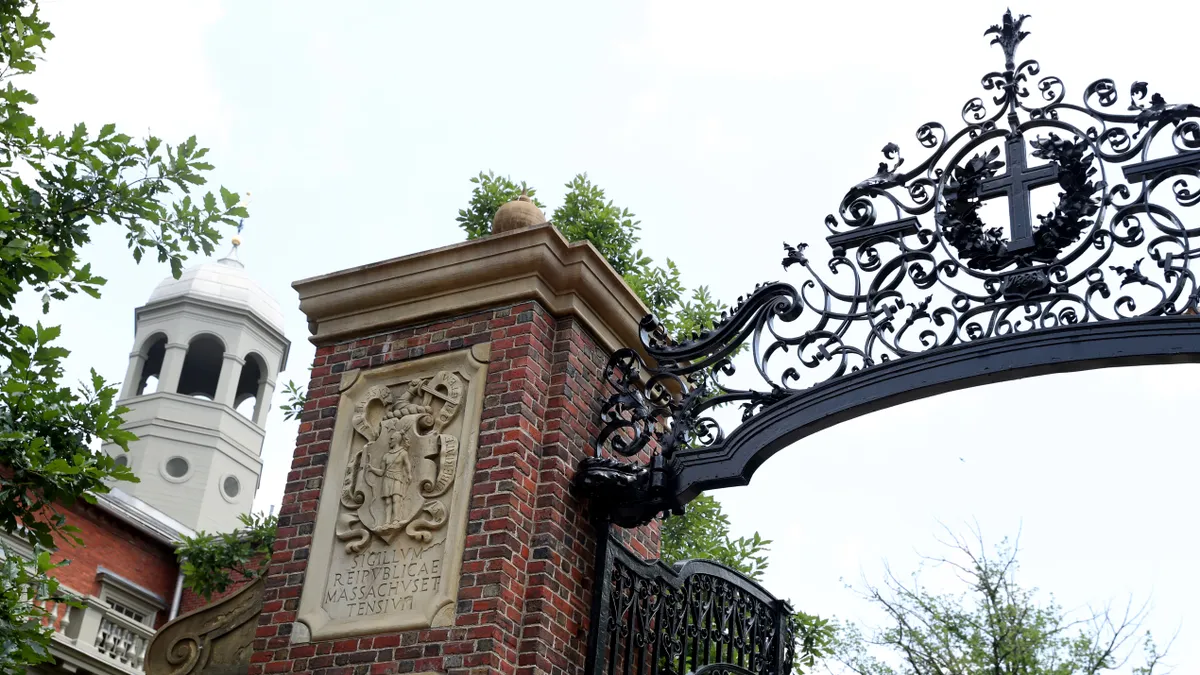Florida’s public university system on Friday authorized use of an SAT and ACT alternative, the Classic Learning Test, in admissions, raising questions about the suitability of a Christian-focused exam in state institutions.
The decision furthers Gov. Ron DeSantis’ conservative vision for higher education. He has made remodeling public education part of his political identity amid his 2024 presidential campaign, spearheading a ban on diversity spending in state colleges and installing right-wing voices to the board of liberal arts institution New College of Florida.
Florida is the only state thus far to allow its public colleges to accept Classic Learning Test, or CLT, which has mostly been used by religious colleges. But the move implies further seismic shifts in the admissions world. Those have included the U.S. Supreme Court’s ruling against race-conscious policies this summer, and the diminishing dominance of the College Board, which administers the SAT and has had run-ins with DeSantis.
The Florida system’s governing board greenlit use of the CLT during its Friday meeting. The decision takes effect immediately.
Only one board member, University of Florida professor Amanda Phalin, spoke out against the concept.
Phalin said she did not outright oppose the CLT or its subject matter, but worried the board didn’t have proof the test was reliable.
“We do not have empirical evidence that this assessment is of the same quality as the ACT and SAT,” Phalin said.
The CLT, controlled by the Classic Learning Initiatives, founded in 2015, emphasizes Christian values and Western ideals, including the scholarship of figures like Greek philosopher Plato and Russian writer Leo Tolstoy. The company seeks “to reconnect knowledge and virtue by providing meaningful assessments and connections to seekers of truth, goodness, and beauty,” its website states.
Broadly, classical education, which has varying definitions, has seen recent momentum, largely in the K-12 space. It’s often associated with conservatism — for instance, a prominent network of classical K-12 schools is run by Hillsdale College, a small, Christian institution that notably eschews federal funding and is a darling of the right.
And so it’s unsurprising the staunchly conservative DeSantis latched onto the CLT.
In May, DeSantis also signed a law that permitted students to submit CLT scores to qualify for the state’s well-known college scholarship program Bright Futures. Florida also pays for K-12 school districts to administer standardized assessments, which now include the CLT, for their high school juniors.
However, CLT creator Jeremy Tate has publicly proclaimed he does not intend for his product to be political.
That sentiment has drawn skepticism from his critics, who have pointed to members of his company’s board, some of whom are influential political figures. They include Christopher Rufo, a right-wing activist who is part of the refreshed leadership slate at New College. He’s also a senior fellow at the Manhattan Institute, a conservative think tank.
A Hillsdale professor and its admissions director also sit on the board — but so too does Cornel West, a scholar who is running for president with the progressive Green Party.
Competing with the SAT, ACT
Whether the CLT can compete with the longstanding brands of SAT and ACT remains to be seen — though far fewer students have taken the CLT.
Only about 24,300 students received exam scores between 2016 and 2023, according to a CLT company report from April. In contrast, about 1.4 million students in the high school 2022 graduating class took the ACT, and 1.7 million took the SAT.
However, the influence of standardized assessments has generally eroded in higher ed, with the COVID-19 pandemic spurring a sharp rise of test-optional policies. Testing data reflects that trend, as 2.1 million students in the class of 2016 took the ACT, and 2.2 million took the SAT in both the 2019 and 2020 classes.
The CLT has attempted to establish its validity, releasing the April report that it said demonstrated the test is comparable to the SAT — known as concordance.
However, the College Board pushed back on this in July, arguing the CLT’s analysis failed to meet research standards. The College Board also noted it did not verify the SAT score data the company relied on.
“College Board was not involved in the study,” it said in a public statement. “Without addressing several methodological and comparability issues, we cannot validate the interpretation and use of concorded CLT-to-SAT scores for high-stakes decisions, like admissions and scholarship awards.”





















